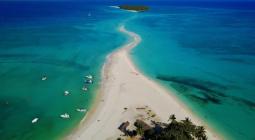DRC: Musicians denounce oil exploitation in protected areas

The DRC government's oil and gas project is also provoking the wrath of musical artists. They have initiated protest concerts, the aim being to thwart the implementation of a government project that threatens the integrity of some of the country's protected areas, including the Virunga National Park.
A collective of artists from the city of Goma, Democratic Republic of Congo (DRC), organized a concert on September 23, 2022, to demand the cancellation of the auction of oil and gas blocks. The concert was organized to counter the Congolese government’s decision to auction off the exploitation rights of 30 oil and gas blocks, some of which straddle protected areas in the Congo Basin (considered the world’s second largest forest lung after Amazonia, ed.) These artists were gathered around the slogan “Together let’s protect our forests and parks for the future of our children”.
At the same time, about 200 young Congolese activists marched for climate protection in Limete, a commune in the city of Kinshasa. The demonstration was held on the sidelines of the pre-COP 27, scheduled for October 3 to 5 in the DRC. According to the secretary general of the Youth Movement for the Protection of the Environment, Rose Mathé, the project undertaken by the Congolese government is “in contradiction” with the will of the country to present itself as a solution against climate change. “The world is in the process of making a transition to renewable energies, which do not pollute. But oil exploitation, on the contrary, destroys the environment”, regrets Rose Mathé.
The challenge for the DRC
In July 2022, the DRC government auctioned off the exploitation rights for 27 oil blocks and three gas blocks. According to environmentalists, nine of these blocks cross protected areas, including the Virunga National Park (created in 1925 on an area of 790,000 hectares), which has been listed as a World Heritage Site by the United Nations Educational, Scientific and Cultural Organization (UNESCO) since 1979. In addition, the concessions concerned cover 11.2 million hectares of tropical forest and one million hectares of peatland.
The Congolese government, for its part, reassures that none of these blocks are located in environmentally sensitive areas. The Minister of Hydrocarbons, Didier Budimbu, foresees revenues of around 2,000 billion dollars. A financial windfall that will enable development projects to be undertaken throughout this Central African country.
Read also-DRC: State puts 27 oil blocks up for sale, at the risk of biodiversity





